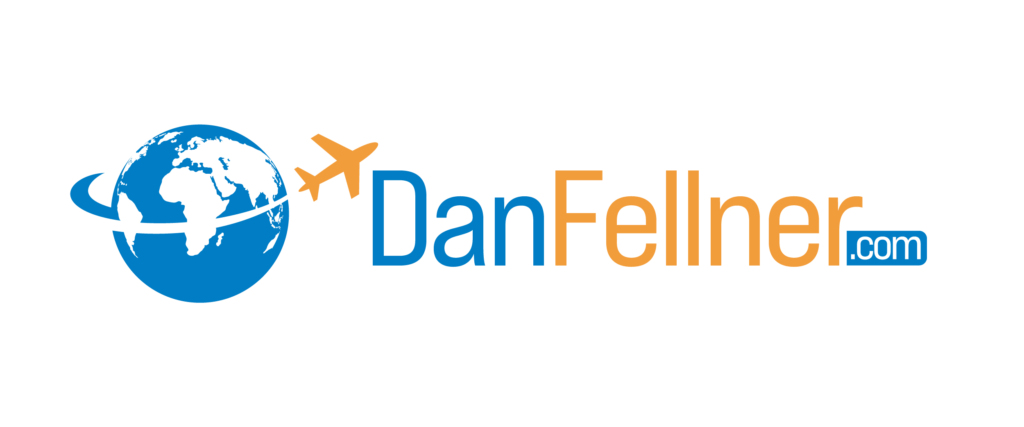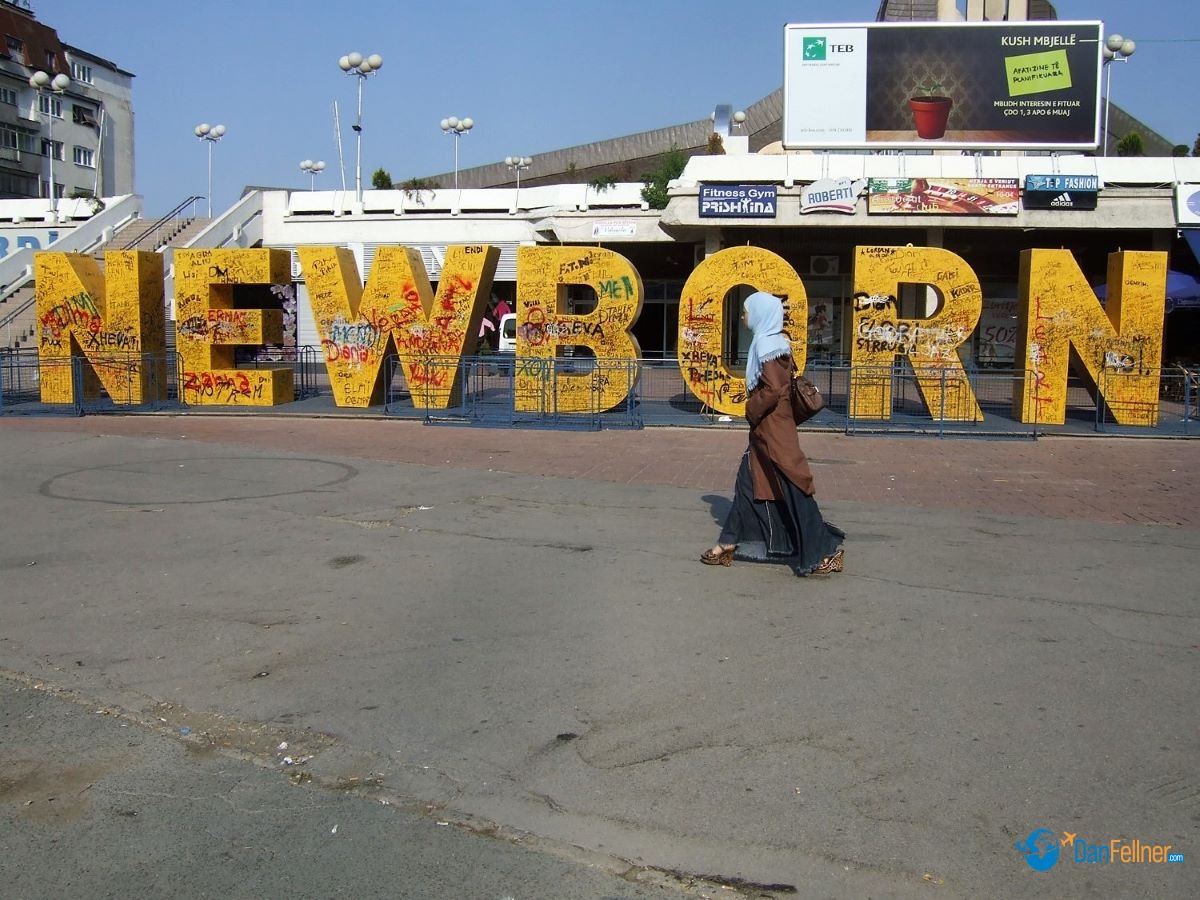World’s newest country more than hospitable to U.S. visitors
The Arizona Republic – August 31, 2008
PRISTINA, Kosovo – It took me all of five minutes after arriving in Pristina, the capital city of the world’s newest country, to realize just how much Americans are appreciated here.
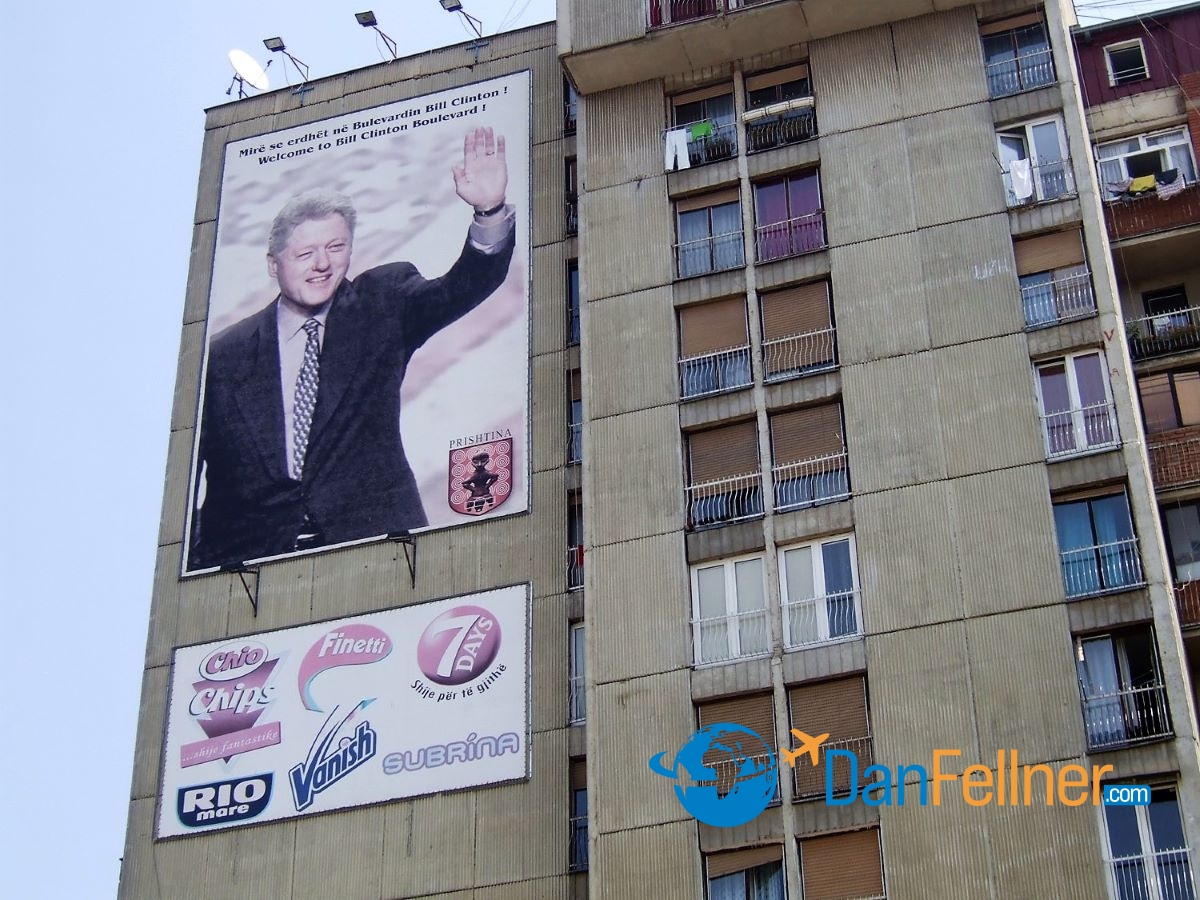
Sign welcoming visitors to Bill Clinton Boulevard in downtown Pristina, Kosovo.
I approached a man waiting outside the airport and asked him to take my photo. He told me his name was Afrim and that he was waiting to pick up a colleague who was on the same flight from London on which I had arrived.
“You have saved our country,” he said, when I told him I was American. The 35-year-old lawyer then went on to tell me why he believed that Kosovo wouldn’t exist had it not been for the support of the United States government and that Americans are adored here more than any other nationality.
Kosovo is a small country of about two million people, mostly ethnic Albanians, located in the Balkans in southeastern Europe. It declared its independence in February from Serbia.
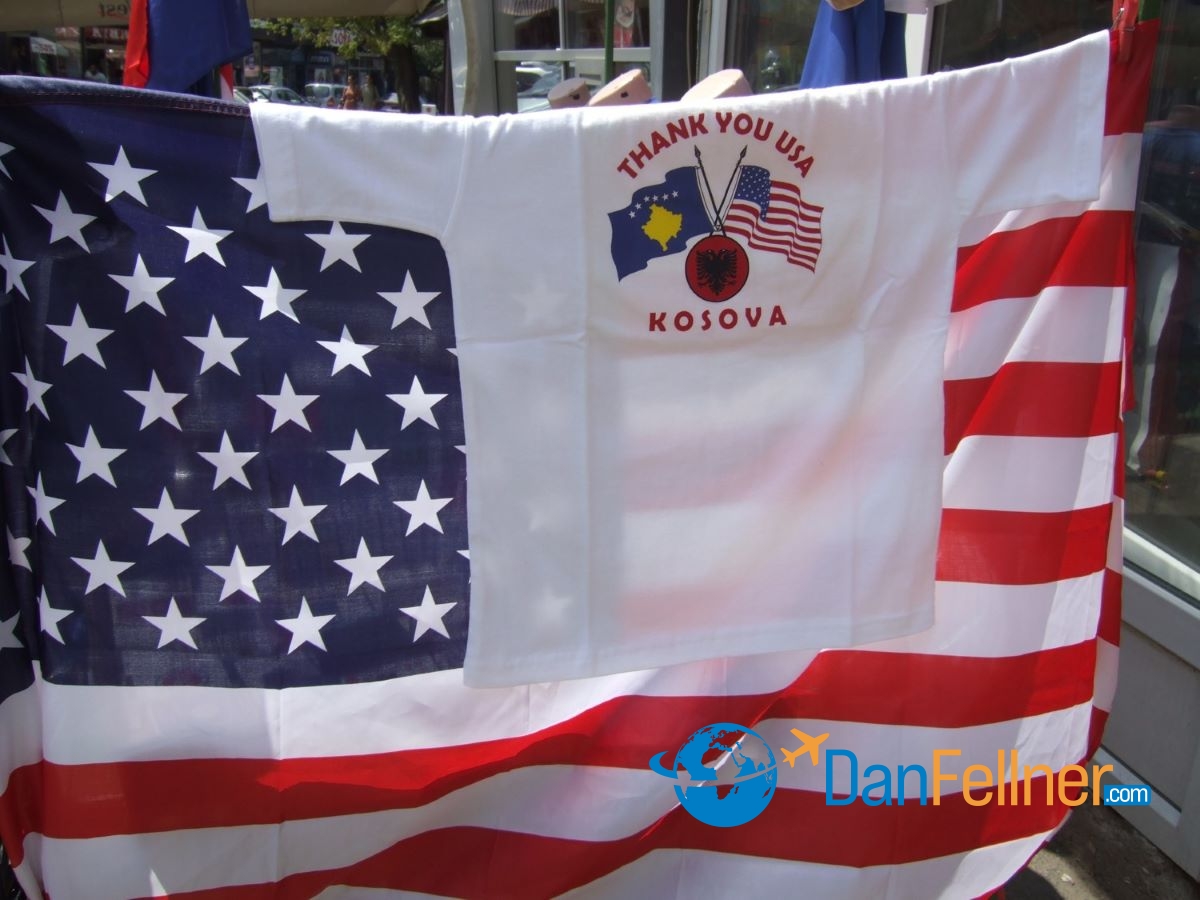
“Thank you USA” shirt and American flag for sale in Pristina, Kosovo.
So far, the United States and 45 other countries have formally recognized Kosovo as an independent country. But Serbia still claims sovereignty over the territory and Kosovo has not been admitted to the United Nations, mainly due to Russian and Chinese opposition.
My experiences during the next two days only confirmed what Afrim had told me. On the taxi ride from the airport into town, I passed a mammoth four-story picture of Bill Clinton plastered on an apartment building welcoming visitors to “Bill Clinton Boulevard,” one of Pristina’s main thoroughfares.
Clinton was president in 1999 when U.S.-led NATO bombing ousted Serbian troops, who had killed thousands of ethnic Albanians. The violence has subsided in recent years and most areas of Kosovo, including Pristina, are now safe for foreign visitors.
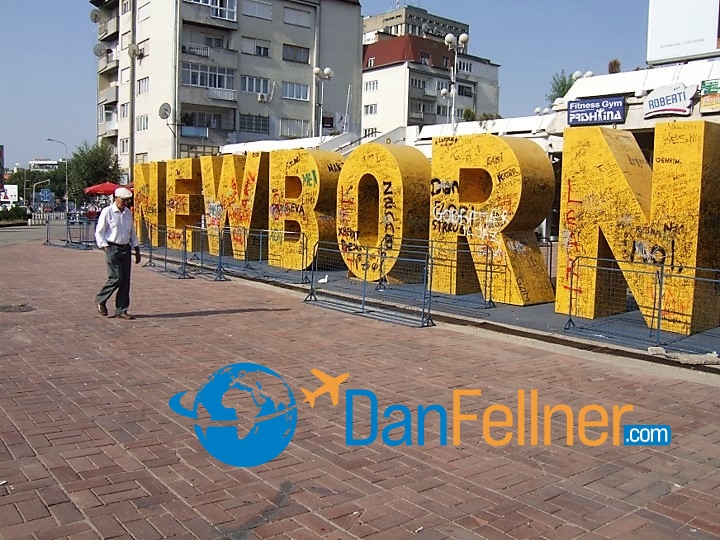
Kosovo declared its independence from Serbia in 2008.
Not surprisingly, the U.S. is not nearly so popular in Serbia, where the U.S. Embassy in Belgrade was attacked in February by demonstrators angry at American support of Kosovo’s independence.
I checked into the Hotel Afa, one of Pristina’s nicer hotels, where Americans and citizens of other countries that have recognized Kosovo receive a 20 percent discount. It was the first time I can remember actually being charged less because I happened to be an American. It usually works the other way around.
The next morning I explored the city’s sights. On the main pedestrian shopping street, I came across a statue of “Nena Tereze” (Mother Teresa), an ethnic Albanian who was born in neighboring Macedonia. Across the street from the United Nations headquarters where vehicles entering the complex were being swept for bombs, Kosovars strolled by 10-foot high yellow-block letters spelling “NEWBORN,” commemorating their recent independence.
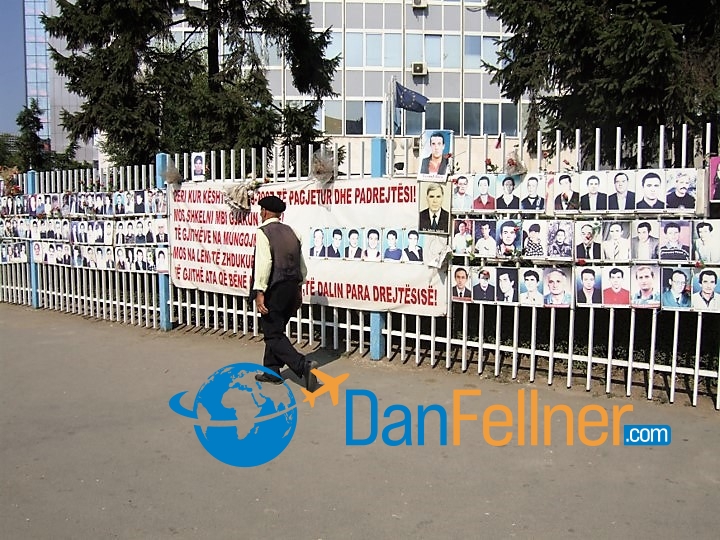
Photos of missing Kosovars outside of the parliament building in Pristina.
Like many newborns, Kosovo is experiencing serious growing pains. Government corruption is rampant, the educational system is in shambles, and unemployment hovers around 50 percent. Pristina’s sidewalk cafes are full of out-of-work Kosovars sipping macchiato. With an estimated 400,000 illegal guns floating around the country, some fear Kosovo could descend into anarchy and ultimately become a so-called failed state.
It won’t be due to the lack of support from both the European Union and United States, which are pumping in money and urging government reforms.
In all of my travels, I have never experienced so much pro-American sentiment. American flags were displayed throughout the city on government buildings next to the new blue and yellow flag of Kosovo. A replica of the Statue of Liberty sat atop the Hotel Victory. I even saw “Thank you USA” T-shirts for sale in souvenir shops.
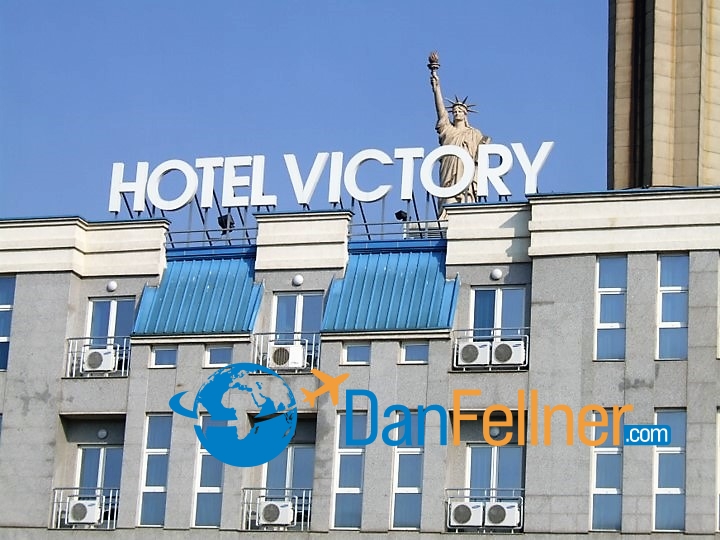
I ate lunch at a restaurant on Bill Clinton Boulevard called the Route 66 Diner. It was decorated with pictures of American movie stars. Next door was a women’s clothing store called the Hillary Boutique. I wondered if it was named after that Hillary.
Of course, the store’s owner told me. “I like her,” he said, adding that he owns two other boutiques also named after the New York senator.
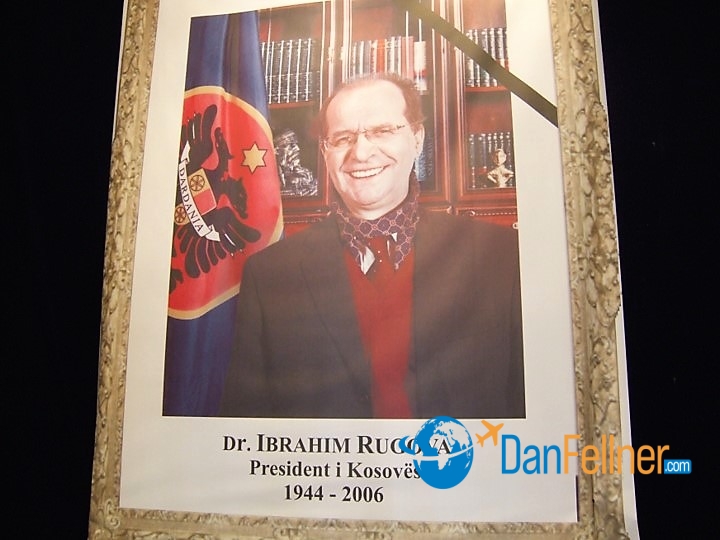
Portrait of Ibrahim Rugova inside the parliament building. Rogova was Kosovo’s president from 2002 until his death in 2006.
I dropped by the parliament building, only to learn that it was closed for visitors. I showed my passport and asked if I could take a quick peek inside. The guard told me to come back in 45 minutes. When I did, I was given a private tour. My guide took me to the floor of the National Assembly, where only a few months ago Kosovo landed on the world stage when it declared independence.
Posted on the fence outside the building were pictures of dozens of Kosovars missing since the 1999 war, a stark reminder of the recent bloodshed that has engulfed the Balkans.
I’ve witnessed a lot of anti-Americanism abroad in recent years, particularly in Europe. But in Pristina, carrying an American passport feels like having a key to the city.
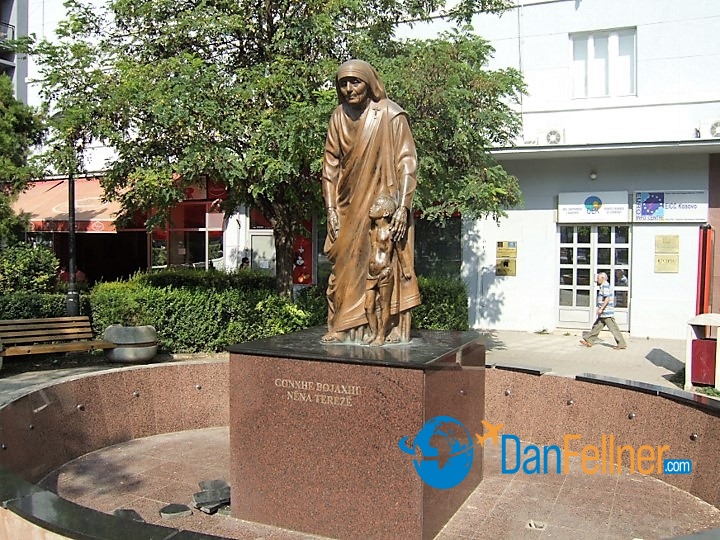
A statue in downtown Pristina of Mother Teresa, an ethnic Albanian who was born in neighboring Macedonia.
© 2009 Dan Fellner
